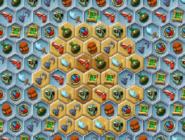BitLife
Advertisement
Advertisement

Bitlife is a life simulation game where players follow a character from birth to death, making choices that affect the course of their virtual life. The game begins with a randomly generated character in a specific country, with assigned attributes such as health, happiness, looks, and intelligence. As time progresses, players can influence these attributes by choosing how the character behaves, what education they pursue, and how they interact with others. Each year, new opportunities and challenges appear, shaping a unique story with every playthrough.
Life Decisions and Their Impact
One of the key features of Bitlife is the decision-making system. From a young age, the player decides how the character responds to school, family, and friends. Later in life, more complex scenarios appear, such as choosing a career, entering relationships, managing finances, or dealing with crime. Some paths may lead to success and stability, while others may end in imprisonment or financial ruin. The consequences are shown clearly, allowing players to reflect on how each choice shaped the outcome.
Variety of Activities and Paths
The game includes a wide range of activities to explore throughout the character’s life. These include:
- Attending school or dropping out
- Pursuing jobs in various industries
- Starting a family or remaining single
- Committing crimes or staying lawful
- Undergoing plastic surgery or staying natural
- Investing in assets or gambling
- Joining the military or becoming an entertainer
This variety allows players to try out many different lifestyles, from ordinary to unusual, and experiment with outcomes they might not pursue in reality.
Expansions and Long-Term Goals
Bitlife offers several premium additions that unlock specialized career paths such as acting, politics, or organized crime. These expansions add new layers to the game by giving more detailed interactions and allowing longer-term strategies. For example, a player pursuing political office must manage public opinion, make campaign decisions, and handle scandals. In contrast, a life of crime might include planning robberies or building a gang empire. The balance between randomness and planning keeps the game replayable and open-ended.
Ultimately, Bitlife is built around exploring human choices through a simplified simulation. Each life tells a different story, depending on how the player navigates both the expected and the unpredictable. There is no final goal; the experience itself becomes the main outcome.
Related games
Comments















